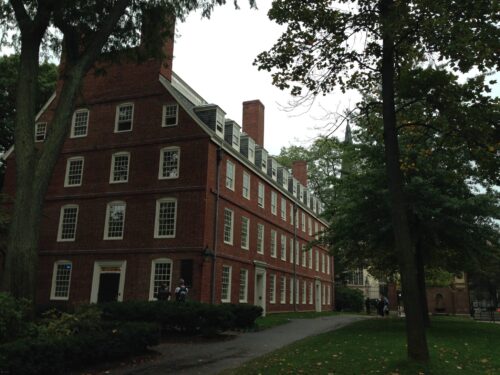ICAMS organization buckles down for a new year after successful spring conference.
By CAROLINE CRONIN
Last spring, senior Diana Sheedy organized the Intercollegiate Coalition Against Modern Slavery (ICAMS) and hosted a conference here at Harvard to address and break down the horrors of modern slavery and exploitation. This year, Sheedy’s dedicated group redoubles their efforts with the new tools and ideas with which the conference provided them.
Sheedy states, “The greatest accomplishment of the ICAMS conference really is the diversity of thought leadership and expertise we were able to unite in one gathering. With approximately 50 attendees, we had 11 incredible schools present and facilitators representing numerous sectors/industries. Ultimately, we essentially created a unified effort that is far more powerful than any group on its own – and this is what has inspired us to shift toward formalizing the network through a software program so that we can leverage the network to a much greater degree.”
However, there is much still to be built on after a few inadequacies of the inaugural conference. Sheedy notes, “There were actually two things we learned we were missing from the conference. First, we realized we could have done a much better job integrating the perspectives and expertise of survivors. We had representatives in the workshops but I believe a much larger shift that needs to continue to happen in the field overall is to value the ideas and insights from survivors as the leading experts in the same way we value scholars and practitioners with fancy degrees and labels. Second, it would have been great to bring in more innovative solutions that don’t directly have ‘modern slavery’ or ‘human trafficking’ labels. While it is incredible to showcase the work being done in the anti-modern slavery field currently, a lot of long-term and systemic solutions will likely not have this label. For example, international development efforts and the creation of economic stability is just as important to tackle these issues as legal work or social services for human trafficking survivors.”
While Sheedy and others are as ever committed to “reinvigorate a focus on the specific types of modern slavery issues such as labor exploitation and sex trafficking – those are the egregious human rights violations that need to end and we will always keep our eyes on that mission,” they still want to adapt and grow with a changing landscape of collaboration to push, “forward to more of an ecosystem approach and that will require an intersectionality framework.”
The ICAMS group has continued their work with this framework in mind over the summer and fall months while still looking forward to the spring conference. ICAMS intends to reincorporate as a non-profit by the end of the year and therefore has continued to ask the question: why are students uniquely positioned to contribute? ICAMS has also continued to host a number of events through the Carr Center at the Kennedy School such as “How Many Are Enslaved Today? A Conversation about the Statistical Credibility of Global Measurements on Modern Slavery,” and were a part of the UN world premiere of Siddharth Kara’s new movie, “Trafficked.”
According to Sheedy, “One of the most exciting opportunities that have recently come up was the chance to present at the AASHE Conference in San Antonio, Texas. It was a conference on sustainability in university systems and we were able to present our work under the title, ‘Social Sustainability: University Procurement and Ethical Labor Standards.’”
With this recent privilege bestowed on Harvard’s ICAMS group, they return to campus to work in three main categories: “implementing procurement policies for ethical labor standards, developing the intercollegiate network (through the platform and regional events), and hosting community engagement events (panels, book talks, coursework and research opportunities, etc.).”
Sheedy admits that despite the hard work involved, she is excited to plan and host, “three regional events for the ICAMS Conference and we are currently planning for San Diego, New York City, and Washington, D.C.” ICAMS is emphasizing the importance of human, IT, and financial capital to further their endeavors through impassioned and skilled individuals in a number of fields. They hope to bring partners in this work together through these conferences and make connections that can make the most difference.
Sheedy concludes, “We need to empirically and quantitatively prove concrete models of change in any of the anti-trafficking work we are looking to see (such as the difference a vendor code of conduct could make with regards to labor standards) and can always use brilliant people offering ideas and resources to make that happen.”
Interested individuals are encouraged to reach out to dsheedy@college.harvard.edu or icams.network@gmail.com, or Facebook for Harvard or the ICAMS Network. As Sheedy has exhibited, a single student can make a wide impact and more are sure to follow in her footsteps.
Caroline Cronin (ccronin01@college.harvard.edu) is once again reinvigorated by Sheedy and others whose passion refuses to allow causes of crucial importance fall to the wayside on our campus.


